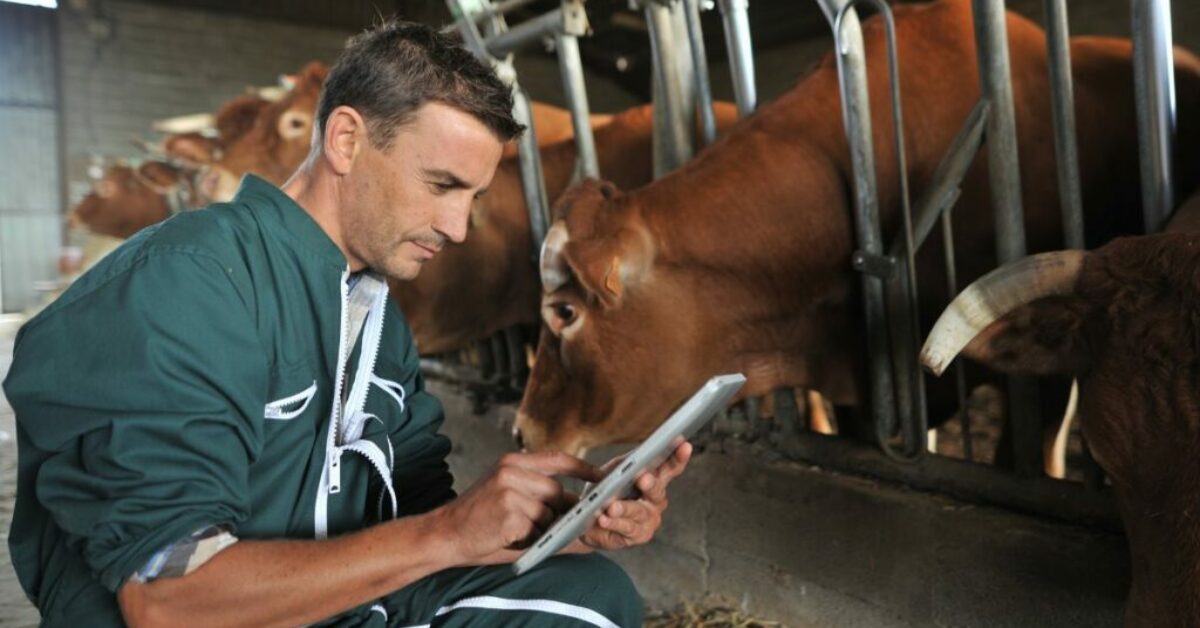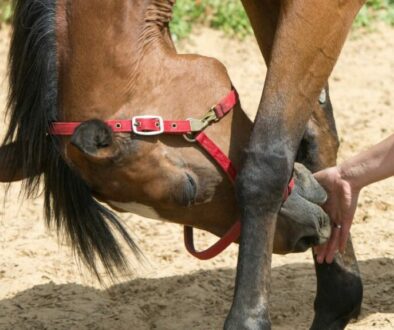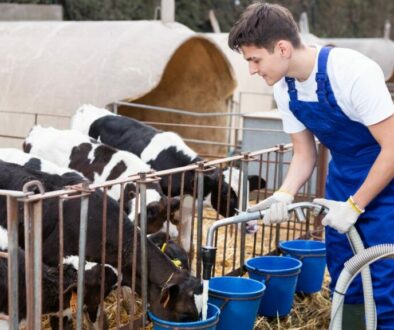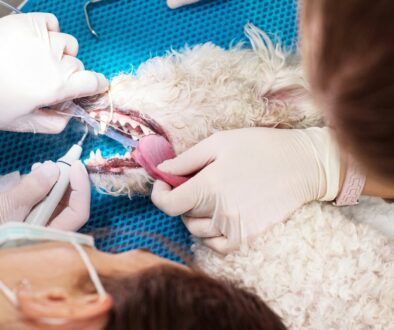How To Become A Large Animal Vet?
Becoming a large animal vet is a rewarding career path for those who love working with animals and have a passion for helping them. It is a challenging field that requires specific skills and knowledge, but with dedication and hard work, it can be a fulfilling career.
Steps To Becoming A Large Animal Vet
If you are passionate about animals and want to work with large animals, becoming a large animal vet can be a rewarding career choice. A large animal vet is a veterinarian who specializes in the diagnosis, treatment, and prevention of diseases in large animals, such as horses, cows, and sheep. Here are some steps that you need to follow to become a large animal vet:
- Obtain a Bachelor’s Degree
The first step to becoming a large animal vet is to obtain a bachelor’s degree in a relevant field. You can choose to major in animal science, biology, or any other related field. During your undergraduate studies, you will learn about animal anatomy, physiology, nutrition, and genetics. You will also gain hands-on experience working with animals in laboratories and on farms.
- Attend Veterinary School
After completing your undergraduate studies, you need to attend veterinary school for four years to obtain a Doctor of Veterinary Medicine (DVM) degree. During your veterinary studies, you will learn about animal diseases, pharmacology, surgery, and other related topics. You will also gain practical experience working with animals in clinical settings.
- Pass National and State-Level Licensing Exams
Once you have obtained your DVM degree, you need to pass national and state-level licensing exams to become a licensed veterinarian. The National Veterinary Medical Board (NVMB) administers the national licensing exam, which is called the North American Veterinary Licensing Examination (NAVLE). The state-level licensing exam may vary depending on the state you want to practice in. For more detailed information about NAVLE, you can visit the official website of the International Council for Veterinary Assessment (ICVA).
- Find a Job and Gain On-the-Job Experience
After obtaining your license, you need to find a job as a large animal vet. You can work in private practices, animal hospitals, research facilities, or government agencies. It is essential to gain on-the-job experience to advance in this field. You will learn about different animal species, diseases, and treatments through practical experience.
It is also important to note that getting accepted into veterinary school can be a competitive process. Having a strong academic background, relevant work experience, and extracurricular activities can all help in standing out during the application process. Therefore, it is important to start preparing early and gain relevant experience in the field.
Skills Needed For Becoming A Large Animal Vet
Working as a large animal veterinarian is a challenging yet rewarding profession that requires a unique set of skills and abilities. In addition to the skills mentioned in the original text, there are several other skills that are essential for success in this field.
One important skill for large animal veterinarians is the ability to work well under pressure. In emergency situations, such as when a horse has colic or a cow is struggling to give birth, veterinarians must be able to stay calm and make quick decisions to save the animal’s life.
Large animal veterinarians also need to have excellent problem-solving skills. They must be able to identify the root cause of an animal’s illness or injury and develop a treatment plan that addresses the problem effectively. This requires a deep understanding of animal anatomy and physiology, as well as knowledge of the latest medical treatments and technologies.
Another important skill for large animal veterinarians is the ability to work collaboratively with other professionals. This includes working with farmers, ranchers, and other animal owners to develop effective animal care plans, as well as working with other veterinarians and animal health professionals to share knowledge and expertise.
Finally, large animal veterinarians must have a deep love and respect for animals. They must be willing to work long hours in sometimes difficult conditions to ensure that animals receive the best possible care. They must also be able to connect with animal owners and build strong relationships based on trust and mutual respect.
Working as a large animal veterinarian requires a unique combination of skills and abilities. From strong communication and critical thinking skills to physical stamina and a deep love for animals, these professionals must possess a wide range of talents to succeed in this challenging yet rewarding field. You can check out Veterinary Practice News, an online platform that provides the latest veterinary medical treatments and technologies.
What is A Large Animal Vet?
A large animal vet is a highly skilled and trained veterinarian that specializes in treating and caring for large animals, such as horses, cows, and other livestock. These animals require specific medical care and treatment, which includes routine check-ups, vaccinations, disease prevention, and treatment for illnesses and injuries.
Large animal vets play a critical role in ensuring the health and well-being of these animals, which are often used for food production, transportation, and other important purposes. They are responsible for diagnosing and treating a wide range of health issues, from minor injuries to life-threatening illnesses.
One of the most important aspects of a large animal vet’s job is preventative care. This involves regular check-ups and vaccinations to ensure that the animals are healthy and free from disease. Large animal vets also work closely with farmers and ranchers to develop and implement disease prevention strategies, which can help to minimize the risk of outbreaks and ensure the long-term health of the animals.
Large animal vets may work in a variety of settings, including private practices, research institutions, and government agencies. They may also work in education, training the next generation of large animal vets. In addition, many large animal vets provide emergency medical care for animals in remote or rural areas, where access to veterinary care may be limited.
Large animal vets face a unique set of challenges in their work. For example, they may need to work in difficult weather conditions, such as extreme heat or cold, and they may need to travel long distances to reach their patients. They also need to be skilled at handling large, sometimes unpredictable animals, which can be dangerous if not handled properly.
Despite these challenges, large animal vets find their work incredibly rewarding. They have the opportunity to make a real difference in the lives of animals and the people who rely on them. Whether they are treating a sick cow on a farm or providing emergency care for a horse in a remote area, large animal vets are dedicated to ensuring the health and well-being of these important animals.
The Benefits of Working as A Large Animal Vet
Working as a large animal vet can be a rewarding career, both personally and professionally. Large animal vets often develop close relationships with their animal patients and their owners, and this can lead to a strong sense of satisfaction in helping animals and contributing to their well-being.
One of the major benefits of working as a large animal vet is the opportunity to work with a variety of animals. Large animal vets work with horses, cows, pigs, sheep, and other farm animals. Each animal presents unique challenges and requires specialized care, making the work both interesting and diverse.
Additionally, working as a large animal vet allows individuals to work outdoors and perform physically demanding tasks, which can be rewarding for those who enjoy an active lifestyle. Large animal vets often spend their days on farms and ranches, working in all types of weather conditions. This can be a refreshing change from working indoors all day.
Another benefit of working as a large animal vet is the opportunity to make a positive impact on the community. Large animal vets play a crucial role in ensuring the health and well-being of farm animals, which are essential to the food supply. By helping to keep these animals healthy, large animal vets are contributing to the overall health of the community.
Finally, becoming a large animal vet can provide opportunities for career advancement and growth. According to ZipRecruiter, as of June 1, 2024, the average yearly salary in the United States is around $165,000. With additional education and experience, large animal vets can specialize in specific areas of veterinary medicine and research, opening up a world of possibilities for career advancement. Some large animal vets go on to become professors, researchers, or even work for government agencies.
Working as a large animal vet can be a fulfilling and exciting career choice. From the opportunity to work with a variety of animals to the chance to make a positive impact on the community, there are many benefits to this profession. If you are considering a career in veterinary medicine, becoming a large animal vet may be the perfect choice for you.
Becoming a large animal vet requires dedication, hard work, and a love for animals. This career path can be both personally and professionally rewarding, providing opportunities for career growth, outdoor work, and the satisfaction of helping animals and their owners. For those interested in pursuing this career path, a strong academic background, relevant work experience, and a genuine passion for animal care can all help pave the way to success as a large animal vet.




